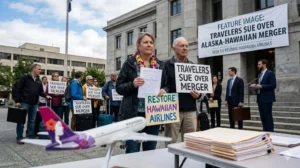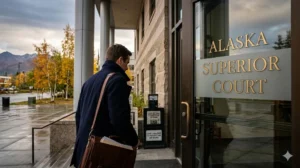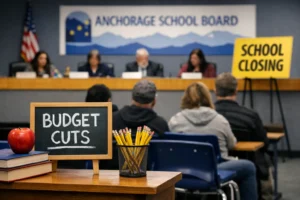Governor Mike Dunleavy proposed legislation that tightens mail ballot deadlines and shortens in-person early voting for Alaskans. Alaska’s early voting restriction bill demands mail ballots reach the Division of Election by election day, ending current rules allowing postmarked ballots to arrive within 10 to 15 days later.
The proposed changes immediately drew criticism from voting rights advocates. Get Out the Native Vote director Michelle Sparck contended that the modifications might make life more difficult for Native populations in rural Alaska.
Sparck explained that it feels like a poll tax for residents off the road, emphasizing how topography and weather cause delays in rural ballot submissions. In the previous election, more than 4000 mail-in ballots received after election day were legitimate.
Sparck cautioned that Alaska’s early voting limitations may further reduce voter turnout in rural areas. Dunleavy’s bill also reduced in-person early voting, closing it five days before election day. Senator Bill Wielechowski called the changes potentially disenfranchising, particularly in areas already struggling with voter access.
Amid criticism, Division of Election Director Carol Beecher emphasized improved efficiency, noting that voters demand quicker results after elections. Meanwhile, Dunleavy’s team claimed the reforms aim to enhance election integrity, reflecting modern voting demands.
The bill introduces state-paid absentee ballot postage and advocates for all mail voting in communities under 750 residents, addressing the lack of polling stations. However, concerns remain regarding disenfranchisement caused by rejected mail ballots in rural areas.
Dunleavy views the legislation as a starting point for future reforms despite pushback. The Senate State Affairs Committee will review Alaska’s early voting restriction proposal later this month.
This news article was originally published by Anchorage Daily News.










